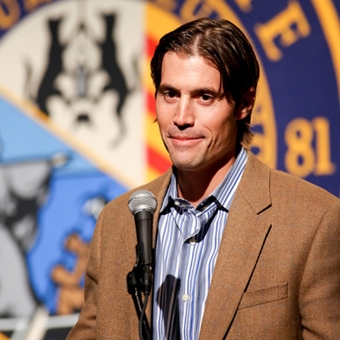As a nation, when we see our neighbors in need after horrific natural disasters, Americans respond with immense compassion and charity. This is clearly evident in the responses to the stream of storms and tornadoes that ravaged Alabama and the entire region. Tornadoes, hurricanes, oil spills, tsunamis, earthquakes – natural disasters elicit a strong sense of compassion, interdependence and charity.
At the same time, however,compassion for the poor and vulnerable in American culture is often criticized for its distinction between the “deserving and undeserving poor.” In 2005, Eileen McNamara of the Boston Globe highlighted the distinction between the victims of Katrina deserving of compassion and the undeserving Boston homeless men in her op-ed “Selective Compassion,”
The front page contrast could not have been more clear: Above the fold, the state of Massachusetts was embracing evacuees from the rooftops over New Orleans, below the fold it was evicting squatters from underneath the bridges of Boston.
Like those homeless men being evicted from the bridges of Boston, a population that is often met more with judgment than compassion are homeless alcoholics. Today’s NY Times profiles St Anthony’s House or “The ‘Wet House’ Where Alcoholics Can Keep Drinking”
Here, at one of several “wet houses” for chronically alcoholic and homeless men, there is little expectation that he will get sober. Instead, there is a tacit acceptance that tomorrow will most likely be no better than today, and that some people — “unfortunates,” as even the Big Book of A.A. concedes — will drink themselves to death.
“If I’m going to die, I don’t want it to be under a bridge,” Dave says, gazing out his room’s one window, which overlooks a parking lot in this industrial neighborhood. Like many of the 60 residents who live in the four-story building, where virtually nothing is breakable, Dave has spent most of his life in a revolving door of detoxes, treatment centers and jails. He has had brief periods of sobriety and has worked on and off in construction, but his work ethic is no match for his alcoholism. “I agreed to come here because I want to hold onto the little bit of dignity that I have left,” he says.
While I do not know how a medical professional or substance abuse counselor would respond to this article. As a moral theologian, I was struck by the recognition of dignity behind Catholic Charities ministry at St Anthony’s House.
It costs $18,000 a year to house and feed each St. Anthony’s resident, a tab that’s shared by Catholic Charities and the state of Minnesota. Each resident gets $89 a month, much of which is spent on alcohol. Three hot meals are served here each day, cable television is available in every room and there is a computer area where I saw a resident watching a YouTube video of Charlie Sheen. “There are people who say: ‘That’s outrageous. You’re just enabling these guys to sit around and drink all day,’ ” Jim Gillham, St. Anthony’s service coordinator, tells me in his office. “And to that I say: ‘Well, we’re not actually doing that, because we help these guys moderate their drinking. Many drink much less than they did on the streets.’ I also try to help people understand how much taxpayer money is saved by this kind of program.”
…
But Bill Hockenberger, a former alcoholic who manages St. Anthony’s, insists that he hasn’t given up on any of his charges and that about 3 to 5 percent stop drinking every year.
As the article indicates, St Anthony’s model is considered dangerous by many substance abuse professionals who maintain a strict 12-step, abstinence program. And there is a part of me that hesitates , questioning if this enables or minimizes the disastrous effects of addiction; however, I am not qualified to evaluate that. The question of whether this is the proper approach to ministering to those who suffer from both chronic alcoholism and chronic homelessness, is for those with greater expertise. However, in the ministry at St Anthony’s I do find a challenging model of unconditional commitment to human dignity and desire to serve a vulnerable population that is simply dismissed by many as undeserving.




I have some experience working with alcoholics and with homeless individuals. I do not like the fact that they are given cash that they can then spend on alcohol, but the idea of giving them a safe place to stay is certainly more humane than leaving them to die on the streets.
However, the idea that our faith encourages change seems to me to contradict providing money for alcohol. Conversion is about turning away from old and turning toward new.
Brian, I hear your concerns. I do not think this is a perfect model – or is intended to minimize the dangers of alcohol. At the same time, I do not think this model, even will allowing them to drink is contrary to conversion. Conversion isn’t a one time thing, it is a perpetual life long process. What I understood in the interview with the director is a deep sense that these are human beings, and by treating them as such he does see positive changes even thought might not be perfect or complete sobriety. I think the devil is in the details – its not money FOR alcohol but a nominal monthly allowance that many/most do spend on alcohol. While I am still processing my own thoughts on this story, I do think that distinction matters.
Meghan, Perhaps it comes down to a matter of perspectives. In the Mental Health and Social Service fields, where I have worked in the past 17 years, there is a drive for results. Outcomes. Success. Evidence Based treatments. I suspect you are right. From the standpoint of a Christian, as a Catholic trying to show Christ’s love to others, the love is not contingent upon the “correct choice” of the recipient of that love. We all have free choice. Ultimately, this “wet house” model may not save them from their addiction, but it does seem to offer a somewhat more unconditional care for them as human beings. Ultimately, you may be hitting on what is a significant flaw in our service delivery system that is based on what is authorized by insurance. We focus on outcome and results, not on dignity and care.
That is exactly what I see in Saint Anthony House – as modeling a very different purpose. Still, that is not to say that outcomes and results are not important (I certainly think they are!) and I would argue this place is only appropriate in very specific contexts, for specific populations – – I think there is a place for outcome driven programs as well. I am certainly an advocate of evidence based medicine…but always dignity and care as well.
Thanks for commenting – its so important to look at these things from many angles!